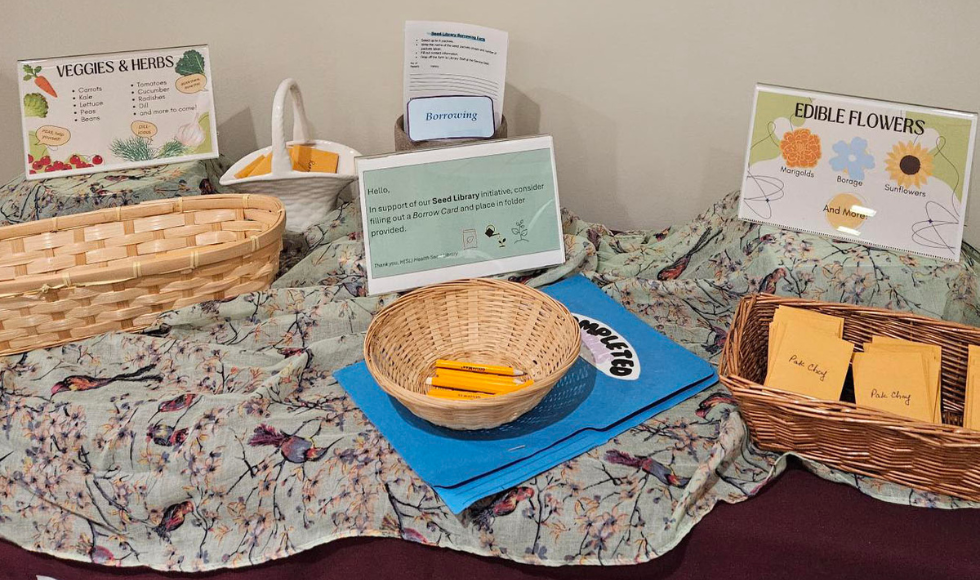Calling all green thumbs: The Seed Library is open

McMaster Seed Library users can take home seeds for produce, herbs and flowers to plant outdoors or in containers. At the end of the season, they can harvest and bring back its seeds for next year's library to offer.
Whether you have a backyard garden, a few pots on a balcony or a hydroponic grower parked on a bookshelf, the McMaster Seed Library has something for you.
The Seed Library is led by the Libraries Sustainability Committee, a volunteer employee group organizes activities focused on climate action and library initiatives.
“This initiative is important because it helps build community awareness and resilience around sustainable food systems, biodiversity, and everyday climate action,” says committee chair Paige Roman, a collection strategy librarian.
“It’s a super low-barrier and tangible way for people to start getting involved with sustainability.”
The Seed Library is a collection of non-GMO vegetable, herb and flower seeds available at H.G. Thode Library of Science and Engineering, Mills Memorial Library and — starting this spring — the Health Sciences Library.
It’s open to faculty, staff, students and the Hamilton community.
“We want to get people thinking about sustainable food systems,” says Jaehee Bae, a library assistant in the Health Sciences Library.
“They can take the seeds, grow them, eventually harvest and share those seeds back.”
You don’t need to be a seasoned gardener to take advantage of the seeds, Bae says: Many of the veggies being offered can be grown in pots and have been selected because they are locally adapted to the climate in Southwestern Ontario.
“We do try to make sure to have seeds that are easily grown in containers for those who don’t have access to green space or a garden of their own.”
At the end of the season, participants are asked to harvest seeds from their crops and share them with the library for next year’s yield.
The Seed Library is rooted in the idea of promoting food sustainability, which involves producing, distributing and consuming food in ways that are environmentally friendly, economically viable and beneficial for future generations, Bae says.
“Generally speaking, we live in a culture that is very catered towards disposability, and I do think food is one of those things that is viewed as disposable. However, veggies and herbs can be regrown. Their seeds can be harvested, resown and shared.”
The program has grown in popularity since launching in 2023 thanks to McMaster Okanagan Special Project Funding.
Anyone interested in obtaining seeds should act quickly, as supplies go fast.


